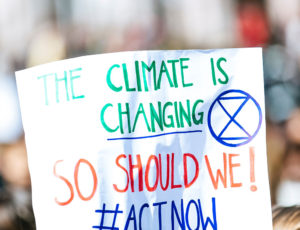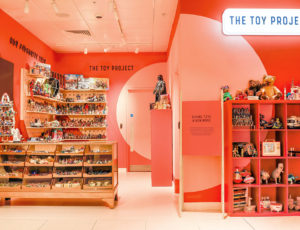
Consumers around the world believe companies are the most responsible for a whole host of sustainability issues. However, according to the latest research from the newly-released Mintel Sustainability Barometer, they also acknowledge consumer behaviour can make a difference.
Almost half (48%) of global consumers believe companies are responsible for increasing the amount of packaging that is recycled; only a quarter (25%) believe responsibility lies with consumers and just a fifth (20%) with governments. Meanwhile, two in five (41%) global consumers believe companies are responsible for reducing emissions from air transport. This is in comparison to 36% who believe it’s up to governments. Just 12% think it is the responsibility of consumers.
Despite this, over half of consumers (54%) also believe we still have time to save the planet. And 51% think their own behaviour can make a positive difference to the environment. This is especially the case for Canadian (65%), Italian (64%), German and Spanish consumers (59% respectively). Plus, 56% of British consumers.
The new Mintel Sustainability Barometer features research and insight on consumers’ sustainability attitudes, behaviours, and purchase preferences across 16 countries. It offers recommendations for brands based on best-in-class innovations, communications, and campaigns.
Commenting is Richard Cope, senior trends consultant, Mintel Consulting. “Given that the International Energy Agency (IEA) believes that over half of the cumulative emissions reductions required to reach zero are linked to consumer choices, one might hope consumers accept more responsibility.
“However, our research shows consumers say companies are most responsible. There are several possible reasons why consumers put the onus on companies. More effective activism, for example, promotes the belief that companies are to blame. The sheer scale of the problem demands a response that feels beyond the capabilities of mere consumers.
“It’s good to see that consumers don’t completely absolve themselves. In fact, in most countries, a small majority still believe there is enough time for redemption. Where there is this optimism, it’s closely linked to a sense that consumer behaviour can make a difference. Educating consumers about sustainability should help increase their engagement, as there seems to be a sustainability gap – a striking difference between consumers’ experience with the causes of climate change and the reality of where the responsibilities lie.
“One of the major challenges for companies and brands is how to effectively close this understanding gap to better position their products and services as part of the sustainability solution. More companies need to take the lead in asserting their positive credentials, but also in explaining what they view as the real societal problems as well as their main business challenges. Messaging and campaigns will be most impactful if brands coordinate with government efforts. Or embrace the zeitgeist for environmental awakening documentaries like Seaspiracy and Kiss the Ground.”
Consumers want companies to quantify the direct environmental impact of purchases
Finally, when asked what encourages them to buy products or services which claim to benefit/protect the environment, consumers are most likely to want information on how their purchase has a direct impact. For instance, one tree planted per purchase (48%).
They are also looking for labelling to show the environmental impact, such as CO2 emitted (47%). Just over two in five (42%) are looking for information measuring impact with quantities they can understand. For example, litres of water used or distance travelled in kilometres. Meanwhile, 41% are looking for recognisable certification to prove their standards, such as B-corp.
Cope continues; “Consumers want companies to use simple terms and data, and to explain the direct and measurable environmental impact of their purchases. To build belief in science and convert potential into actual purchases, companies need to offer up a new sustainability lexicon that consumers can easily understand.
“In addition to wanting third party accreditation, it’s notable that consumers want to understand their personal impact through purchasing to support their belief that their purchases can have a positive impact on the environment.”
The full report is available to download for free here.













